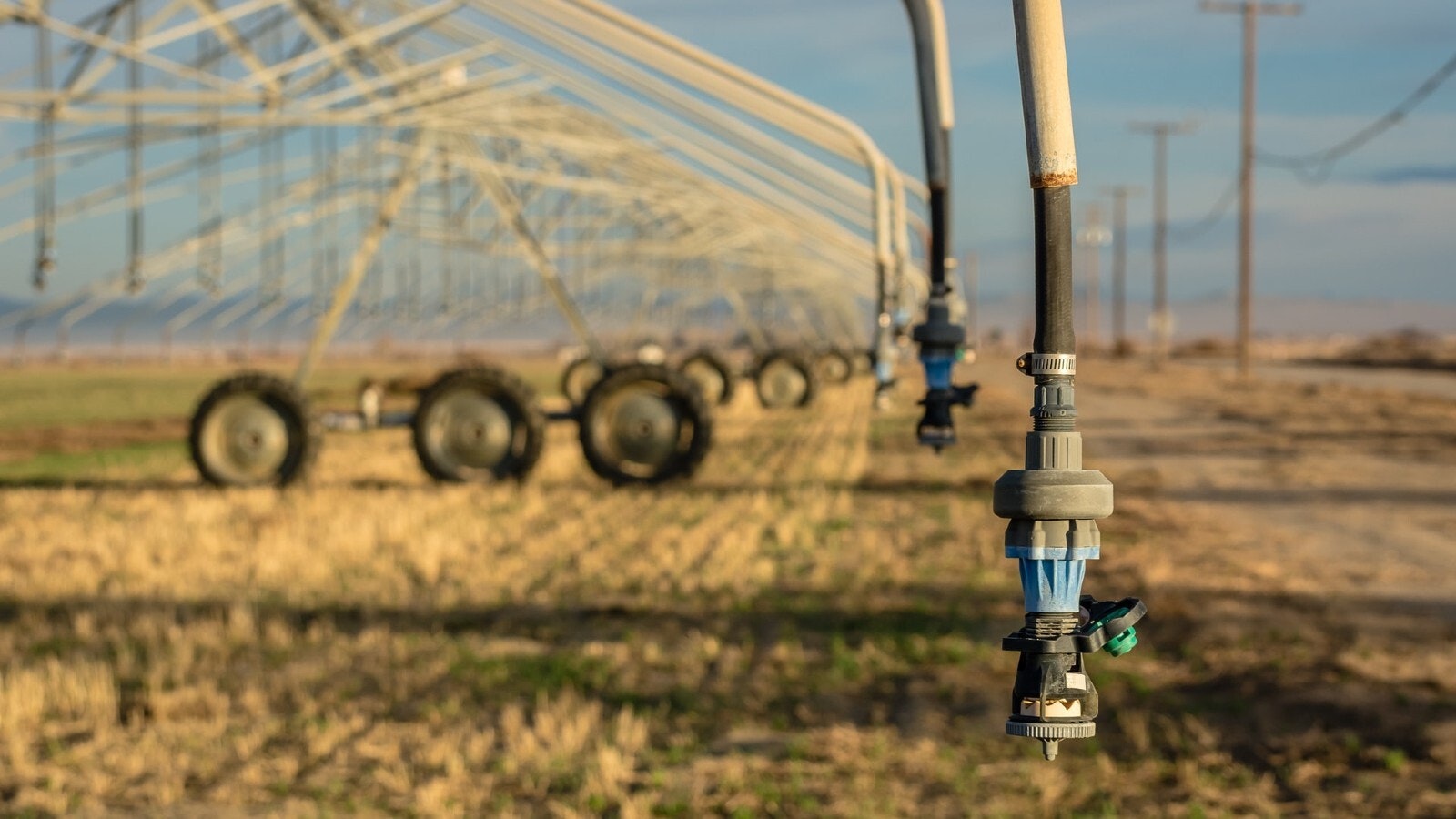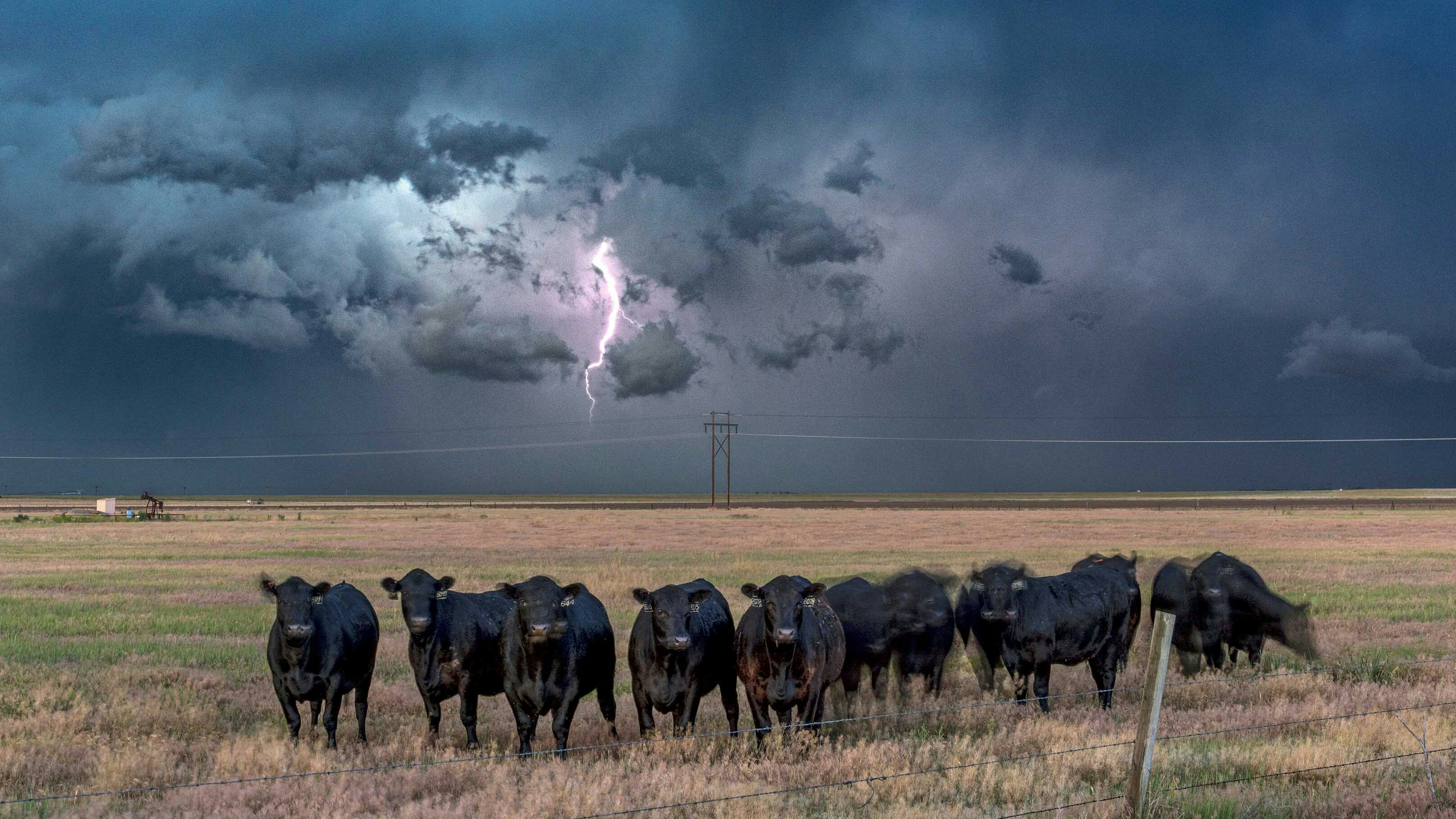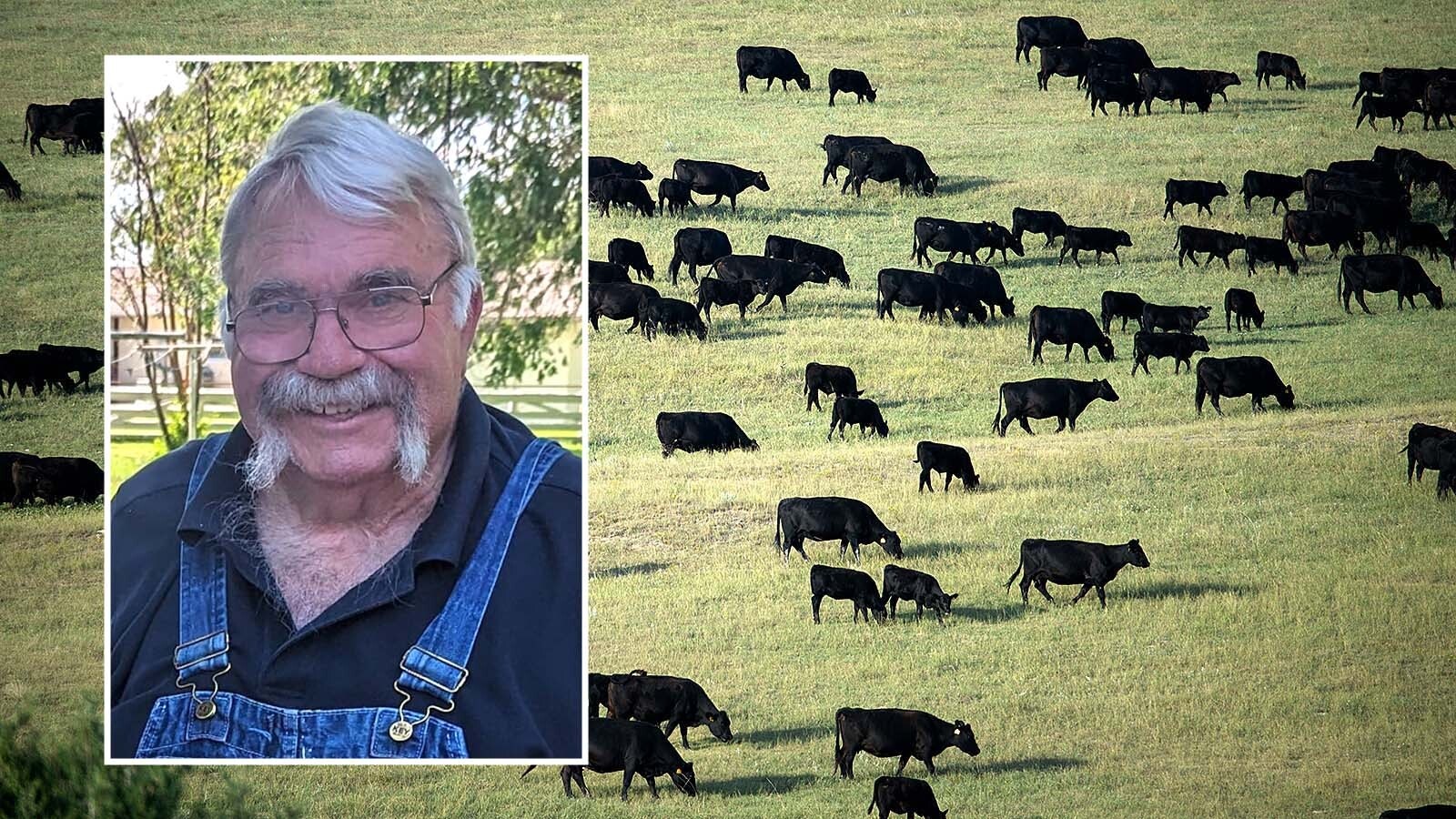Wyoming’s farmers and ranchers are not being hit as hard by the drought seen across the West as their counterparts in other states, several told Cowboy State Daily on Friday.
Kyle Berger, whose family owns a livestock ranch in Saratoga, told Cowboy State Daily that the area has been “abnormally” dry for about two years, which has had both immediate and long-term effects.
“The immediate effect is that we can’t grow as much forage as we typically do,” Berger said. “Last year, we had to buy a lot more feed and lease some more grounds. We were actually able to maintain our numbers, but there’s also the higher expense and less income in this situation.”
While the Berger family ranch is not being forced to sell off more cattle or land due to the drought, concerns about continued dry weather and subnormal snowmelt is always at the back of everyone’s mind., Berger said.
He added the most important part of ranching is always being able to adapt to conditions, and a drought is something that can be planned for, at least somewhat.
“You basically have to have a drought plan in mind,” Berger said. “If we get several years of severe drought conditions, that can be concerning, because a person can’t make a living. As far as being worried about the future, we just make a plan and keep going.”
According to the U.S. drought monitor conditions for Wyoming, 100% of the state is considered “abnormally dry.” Most of the state, 97.6%, is considered to be in a “moderate drought,” meaning that hay and forage yield is low, fire danger is elevated and fewer wildflowers bloom.
Just over half of the state, 59.9%, is in a severe drought, which means that pasture conditions are poor, trees and vegetation are stressed and water pressures are low. Some of these areas include Lincoln, Sweetwater, Big Horn and Uinta counties.
However, a small portion, 20.6% of the state, is in an extreme drought, which means that snowpack in those areas is low and surface waters are inadequate for farming and ranching. The areas in extreme drought include at least some of Campbell, Johnson, Park and Teton counties.
According to the drought monitor, 2022 is the seventh driest year on record, with March being the 27th driest on record in the last 128 years. Basically everyone in the state is affected by the drought in one way or another.
Ken Hamilton, vice president of the Wyoming Farm Bureau, told Cowboy State Daily that this time of the year, mid-April, was critical when it comes to precipitation.
“This time of year is the ‘Hold your breath and hope’ kind of a time, because these winter storms are helping with the snowpack,” he said. “The last few snowstorms have improved some of the snowpack, but it’s got a way to go.”
Many Farm Bureau members are currently taking stock of their spring feed, trying to decide how to handle their livestock this year, Hamilton said.
While both farmers and ranchers have been affected by the drought, Hamilton noted that those in the ranching business were particularly hit hard last year by the dry conditions.
“We were really fortunate 100 years ago when we developed some of our irrigation systems, so we ended up with adequate supplies,” he said. “But based on the snowpack levels we’re seeing, it’s not going to be a great year for our ranchers.”
Abby Shuler, whose family raises crops and cattle in Park County, said that luckily, their business has not been severely impacted by the drought due to the fact that they have an irrigation system.
“As long as we have snowpack in the mountains, we’re good,” she told Cowboy State Daily. “But with the wind, our corrals stay dry. One of our manure guys came in and cleaned our corral recently and they were having to break up that hard crust in the grass, they couldn’t scoop it out normally. That’s how dry it is here.”





